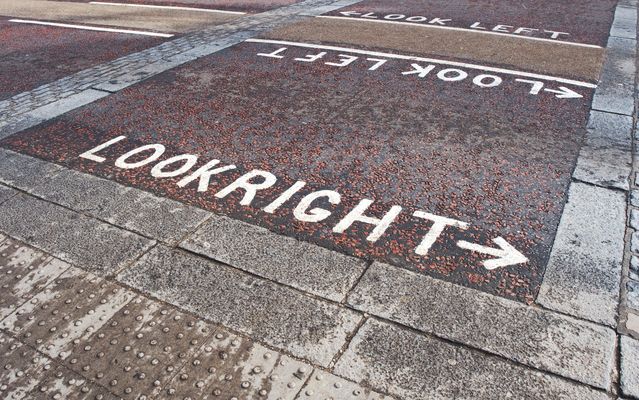Politics
What Event Causes People to Become Politically Conservative?
This Single Life Event May Cause Your Politics to Shift To the Right
Posted September 3, 2018

The father of neo-conservativism Irving Kristol famously said that a conservative “is a liberal mugged by reality.” Now there’s no evidence that being a victim of a crime or downtrodden circumstances causes people to become politically conservative. But a brand new study does point to another life experience that is likely to have this effect (and luckily it is one far more pleasant than a mugging).
Although political beliefs and attitudes are fairly stable across the lifetime, they do shift as a result of changes in life experiences and motivations. For example, people who win the lottery tend to instantly shift to a more conservative attitude. And the larger their win, the more they tilt toward the right. Their sudden windfall changes their financial motivations, which in turn changes their political preferences.
A similar effect can be seen in another major life transition: parenthood. When people have children, their motivations change. They become more aware of potential threats in the world and as a result become more cautious and risk-aversive. In fact, just providing parents with parental cues—asking them to recall their child’s birth, showing them pictures of infants—is enough to make them more sensitive to dangers.
But parents aren’t just more vigilant about physical threats. They also become more attuned to moral threats. Becoming a parent tends to shift people from a short-term mating strategy (pursuing hook-ups) to a long-term mating strategy (pursuing a romantic, committed relationship). As a result, parents may be more likely to see morally questionable behavior, such as promiscuity, abortion or non-traditional lifestyles, as a threat to their way of life. This in turn may lead them to adopt more conservative political attitudes.
To examine the relationship between parenthood and political conservativism, a team of researchers from Tulane University exposed respondents to a series of morally-questionable scenarios. Here are some examples:
- You see a girl laughing at another student forgetting her lines at a school play.
- You see a mayor saying that the neighboring town is a much better town.
- You see a player publicly yelling at his soccer coach during a playoff game.
- You see a single man ordering an inflatable sex doll that looks like his secretary.
The researchers found that parents were more likely than non-parents to judge these scenarios as moral violations. Furthermore, they also found that parents in this study were more likely to hold socially conservative attitudes (but parents were not more likely to hold financially conservative attitudes).
So why does parenting lead to a socially conservative shift?
At this point the exact causal mechanism is unclear. But the researchers do have some ideas. In a yet-to-be published follow-up study, they found parents were higher in the belief in a dangerous world, which in turn was associated with more social conservatism. So it may be that perceiving the world as dangerous is the linchpin that connects parenthood with conservatism.
If you think about it, this makes some sense. When we become parents, we are forced to care about someone other than ourselves. Someone far more vulnerable and innocent. We suddenly become vigilant of the possible dangers lurking around every corner. Disease, crime, pedophiles, terrorism—all these threats loom larger when we are responsible for a child’s life. So it’s no wonder that parents thrust into this vigilant state might prefer conservative policies that emphasize security and safety, rather than liberal policies that emphasize liberty and diversity.
Of course not every parent becomes a Republican. There are lots of Democrats with children, so it is likely the case that some other factor interacts with parenthood to produce a conservative shift. For instance, people with certain personality traits or genetic factors may be more likely to become socially conservative once they enter parenthood. More research is needed to explore this possibility.
But this study also highlights an important point more generally. Many of the studies I cover in my political blog emphasize how conservatives and liberals are wired differently. But this does not mean that such differences existed at birth or that they are impossible to change. Life experiences, be they good or bad, have the power to rewire our brains, not just metaphorically but physically. This malleable quality is called “neuroplasticity” and it means that our brains and our politics are capable of change.
That’s a comforting thought given the current state of our political climate.
To learn more about the psychology of politics, check out my “Red Brain, Blue Brain” blog at www.redbrainbluebrain.com




